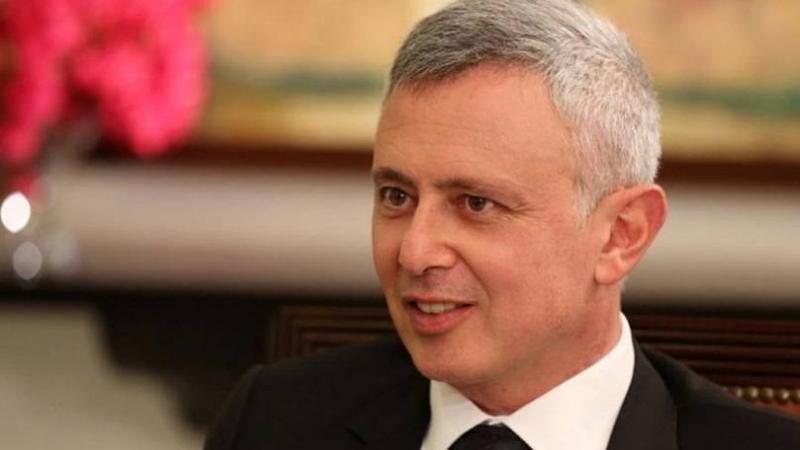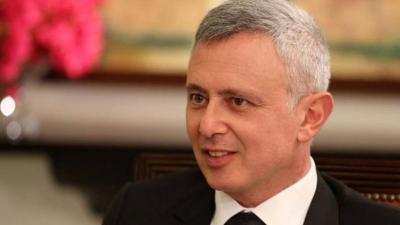On the eve of the presidential elections in Lebanon on August 17, 1970, during the nomination of then-Minister of Economy Suleiman Frangieh, President Camille Chamoun was also a candidate, alongside his companions in the "triple alliance," Pierre Gemayel and Raymond Edde. To persuade the former president to step aside for the Zgharta candidate, who was agreed to have the ability to win at least with his vote against his rival, Shihabist Elias Sarkis, Frangieh approached Chamoun and simply stated, "In 1952, my brother Hamid stepped aside for you to be elected with the best national consensus and withdrew, even though he was a competitor and enjoyed significant support. Now it is time to return the favor."
Although Hezbollah's Secretary-General Hassan Nasrallah, in his recent speech on November 11, specified the qualities he wants in a president without naming anyone, speculation has revolved around only two: Suleiman Frangieh and Gibran Bassil. The former is advancing over the latter in various speculations for several reasons, including American sanctions against him, the fact that he is experienced, and the difficulty in gaining a broader national endorsement from all blocs and sects. These negative motives are actually advantages for Frangieh.
While he has not explicitly stated that he is a candidate, and although no one excludes the possibility of his nomination, and it is assumed to be natural and inevitable, the former Zgharta MP has a perspective on the nomination and the elections that those familiar with his stance have heard. Those recounting his words say: "I am open to all possibilities, whether for the presidency or not achieving it. The parties are fighting over it today as if it were a lottery prize, while in reality, it is a real ball of fire. All the presidents who have succeeded have carried the presidency as a ball of fire, and the presidency has always been a ball of fire. I will not repeat what some used to say in the past that his election was a sacrifice on his part; rather, I will take responsibility for it. We are in a country in collapse, closer to rubble. Yet, we are divided over his presidency. I do not know if I will succeed or fail. What I know is that I will try and do my best to succeed. Achieving it is not an end in itself. The last time I relinquished it, and I am not clinging to it now unless there is a chance for rescue and success. Success first requires taking responsibility."
Regarding whether he is a challenging candidate as described by his opponents, who also have a challenger, while President Nabih Berri calls for consensus, he said: "The consensual president is not just one elected consensually but acts that way as well. Of course, I am part of a project and a line, and I adhere to my position in both, but electing me president would obligate me to represent all Lebanese, both supporters and opponents, not just my line and project. I commit to what I can promise to do, no less and no more. I do not promise what I will not do, but I promise what I will not do. What I can concede is what I have announced, and what I cannot concede I will not hide. I know what I have and what I can do. I will not be the president of my party alone, but I will give the resistance what the adversary or enemy does not give it. I do what I say. Let us not forget that we are in a country governed by power balances and political and sectarian equations that restrict the ability to act. The one incapable of facing the resistance will surely realize that his election will make him even more incapable of thinking about striking it tomorrow. The reality imposes its will on everyone, as do the internal balances. Attempts to overthrow it will only lead to the destruction of the country without presenting any solutions. We need deliberation in thinking and action to address all our problems, including the issue of resistance weapons. It has existed since before my election, if elected, and it does not need my cover and protection. I agree with Mr. Hassan Nasrallah on what he recently said that the need is for a president who does not stab the resistance in the back. What I will do is that I will not conspire against the resistance, nor will I conspire against its opponents and enemies."
He is quoted as saying, "I will not come to take revenge on anyone, nor to settle any accounts with anyone, neither for the past nor the future in advance, and I will not favor one party over another."
Is he capable of rebuilding a nearly collapsed state? "In my political past between 1990 and 2005, I was a minister and a deputy, and I never asked for anything for myself. What I should focus on is a unified national project agreed upon by everyone, with the necessity of accepting variation in viewpoints among this team or that. However, through agreement and understanding for the public good, we can overcome differences. If there are two distant political projects, they will certainly stall each other out. Each will block the other. I experienced this when I was Minister of Interior in 2004 and 2005 when we were about to draft the electoral law. If each party sticks to its project, we will certainly face a deadlock and a dilemma. If we reach internal agreement, external support for this agreement will come and will be a helping factor in the solution, while the opposite is not true. The outside world cannot impose agreement on us and will leave us to flounder in our problems as we currently do. Building the state and the economy is solvable if we truly want it and engage in dialogue. Not all our problems are equal in their repercussions. There are priorities that must be taken into account that affect all Lebanese and their sects, not limited to a particular faction or sect only. Our top priority is to stop the collapse and address the social, living, and monetary problems and reforms, all of which are solvable except if we do not want that. The issue of Hezbollah's weapons is at the top of the priorities, and we know that we, as Lebanese, are unable to find a solution for it, meaning we are blocking the resolution of our internal issues that can easily be agreed upon while awaiting a resolution to its fate. Hezbollah's weapon has a regional and international dimension, and we are unable to resolve it on our own. Our daily problems have accumulated since 2019 and cannot wait for any other matter and cannot be postponed, lest we reach rock bottom. Ahead of me is a ladder of priorities that we address in agreement sequentially."
Is he confident of receiving external support for his election? According to those familiar with his position, "Communication is ongoing between me and the Americans and the French. Of course, they are not friends of Hezbollah or its weapon, and they know my position in the political project and line. Nevertheless, there is communication between us and mutual respect. The French supported my candidacy in 2016, which President Francois Hollande told me in a phone call. Up to now, I have not heard from the Americans and the French that they support my election, but I have not received any negative messages opposing me or indicating that they do not want me. The same is true of Saudi Arabia. There is no direct communication, but no negative messages have reached me from them. Some friends bring me indirect messages of goodwill. These are not the issue, nor are the Lebanese parties who are speaking to me, like Presidents Nabih Berri and Saad Hariri. The problem lies in the animosity between me and some Christian parties. My question to them is: is their issue with a president who succeeds, or with a president who fails?"




